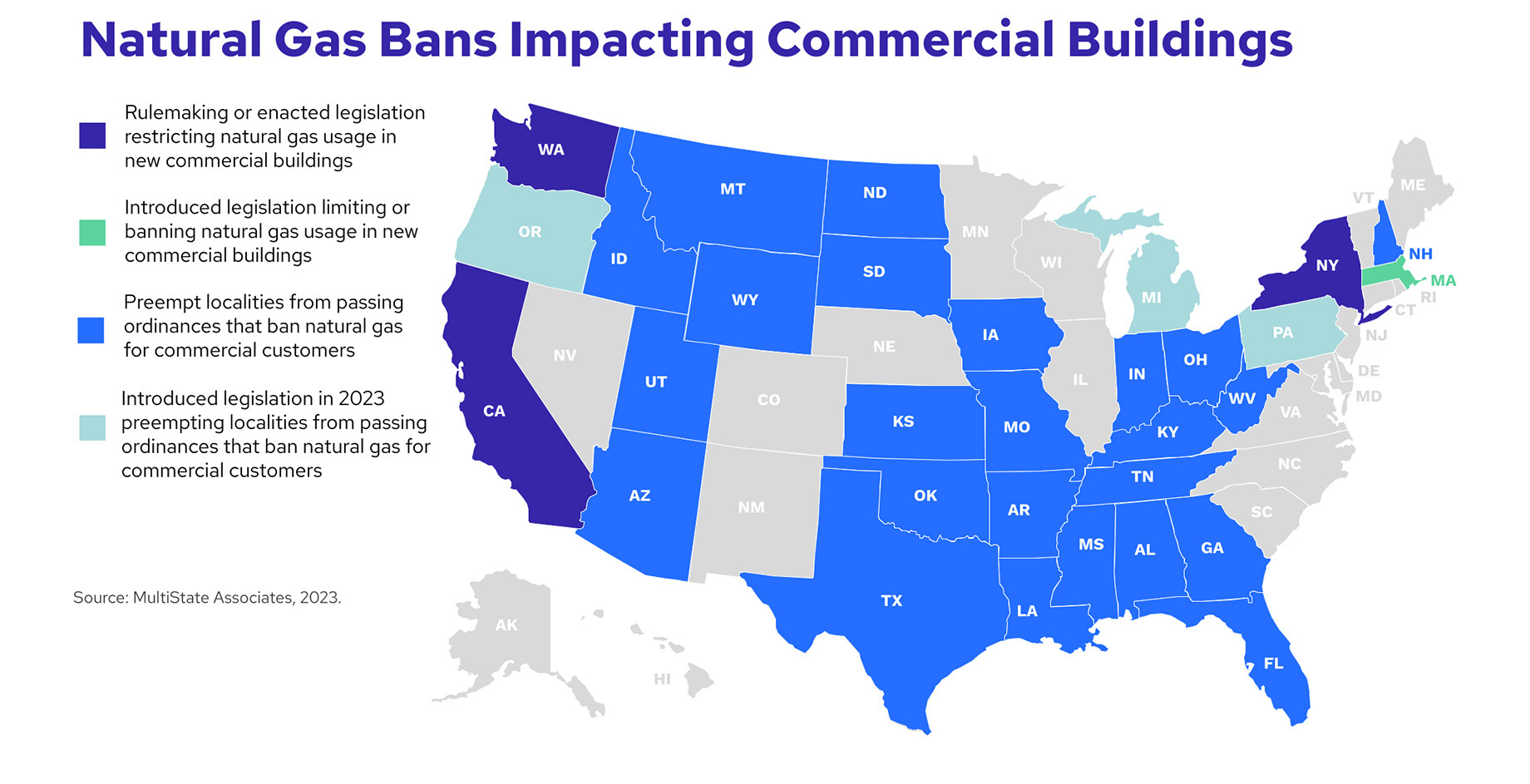Last week, New York lawmakers made history by enacting the first statewide ban on natural gas and other fossil fuel hookups in most new buildings. In an agreement with the Legislature, Governor Kathy Hochul (D) signed a $229 billion state budget (NY AB 3008 & SB 4008C) that included a provision requiring most new buildings shorter than seven stories to install all-electric heating and cooking by 2026, with taller buildings to follow suit in 2029. The bill provides exemptions only to manufacturing, commercial food, car wash, laundry, medical and other critical and emergency infrastructure facilities.
Proponents say the new law will reduce New York’s greenhouse gas (GHG) emissions and encourage the use of renewable energy sources to power homes and other buildings. Critics of the ban, however, say the new law could not only lead to higher energy bills for consumers and businesses, but could also cause delays in building construction since the electrical grid will have an increased demand from new users. Notwithstanding these concerns, the law is expected to invite legal challenges over the state’s authority to ban the use of fossil fuel outright. A federal appeals court recently struck down Berkeley, California’s first-in-the-nation local ban on natural gas hookups.
Until now, much of the action over banning natural gas hookups in buildings has occurred at the local level and primarily targeted residential buildings. After Berkeley issued its ban in 2019, several of the largest U.S. cities — Los Angeles, New York City, San Francisco, Seattle and Washington, D.C. — each adopted rules that would either ban or limit the use of natural gas in new residential and commercial buildings.
On the state level, Washington adopted rules last year updating its energy code to require new commercial buildings to use heat pumps for space heating. California followed suit when the California Air Resources Board (CARB) approved its plan to phase out natural gas burning heaters and appliances in new buildings.
Many Republican lawmakers, critical of banning the use of natural gas in buildings, have advanced bills to curb local officials from issuing bans. This year, lawmakers in Idaho (ID HB 106), Montana (MT SB 208), North Dakota (ND HB 1234) and South Dakota (SD HB 1239 & SD SB 174) enacted legislation to preempt localities from prohibiting the sale of natural gas to customers. Nearly half of all U.S. states now prohibit local bans on natural gas hookups.
The debate over banning natural gas in buildings is only expected to heat up with climate advocates looking to make the policy more mainstream. Exemptions for commercial buildings have made natural gas bans in buildings more politically palatable in cities and states. But, as long as there is support for carbon eliminating policies, bans on what sources of energy commercial buildings can use is likely to be on the table for cities and states that have recently banned it for residential buildings.
